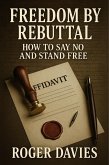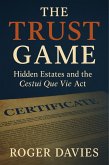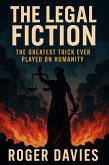Freedom by Notice shows another way. It teaches how to respond with calm, lawful paperwork that shifts the burden of proof back to the claimant. It explains why the written word is the most powerful weapon for the living man or woman, and how notices, affidavits, and conditional acceptance create evidence that stands even when officials refuse to reply.
Across clear and practical chapters, Roger Davies covers:
• The power of notices and why they work under commercial and common law • How to use conditional acceptance to agree only on proof of claim • The difference between notices and letters and why wording matters • Creating affidavits of truth that stand unrebutted as evidence • Building a proper paper trail and keeping records safe • Using fee schedules to set terms for future interactions • Turning every demand into an opportunity to challenge jurisdiction • Common mistakes that place you in dishonour and how to avoid them • Real examples where paperwork ended claims, cancelled debts, or stopped court action
This book makes clear that notices are not about aggression. They are about standing in honour and giving the other party a chance to correct themselves. When they fail to respond, they agree by their silence. When you put this on the record, you change the entire balance of power.
Freedom by Notice also shows why timing is critical, why you must keep copies of every document, and why you should never argue in person when a written record will do. It provides sample wording and guidance so you can create your own notices without copying templates blindly.
You will learn how to respond to:
• Council tax and utility demands • Parking fines and penalty charge notices • Debt collection letters • Banking and loan enforcement • Court summons and threats of enforcement
This is not about avoiding responsibility. It is about demanding proof, asking lawful questions, and refusing to be bound without contract. It is about living as a man or woman of honour and holding others to the same standard.
Freedom by Notice is for those who are ready to stop being passive subjects and start living as sovereign men and women. It is for those who want to take control of their communications, stay out of unnecessary conflict, and win quietly with paper instead of anger.
The system fears nothing more than a calm, honourable record. This book will show you how to create one.
Dieser Download kann aus rechtlichen Gründen nur mit Rechnungsadresse in A, B, CY, CZ, D, DK, EW, E, FIN, F, GR, H, IRL, I, LT, L, LR, M, NL, PL, P, R, S, SLO, SK ausgeliefert werden.









